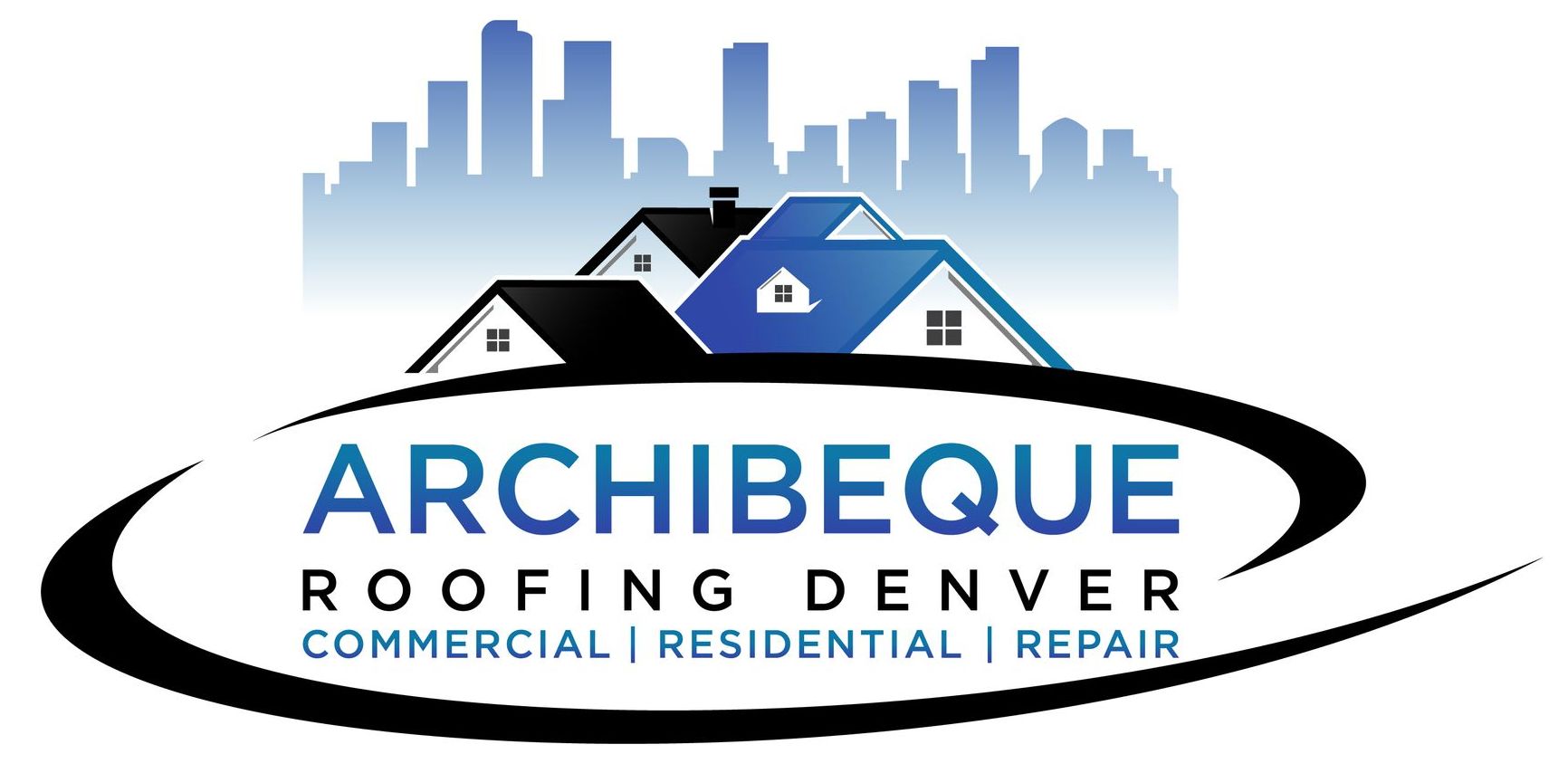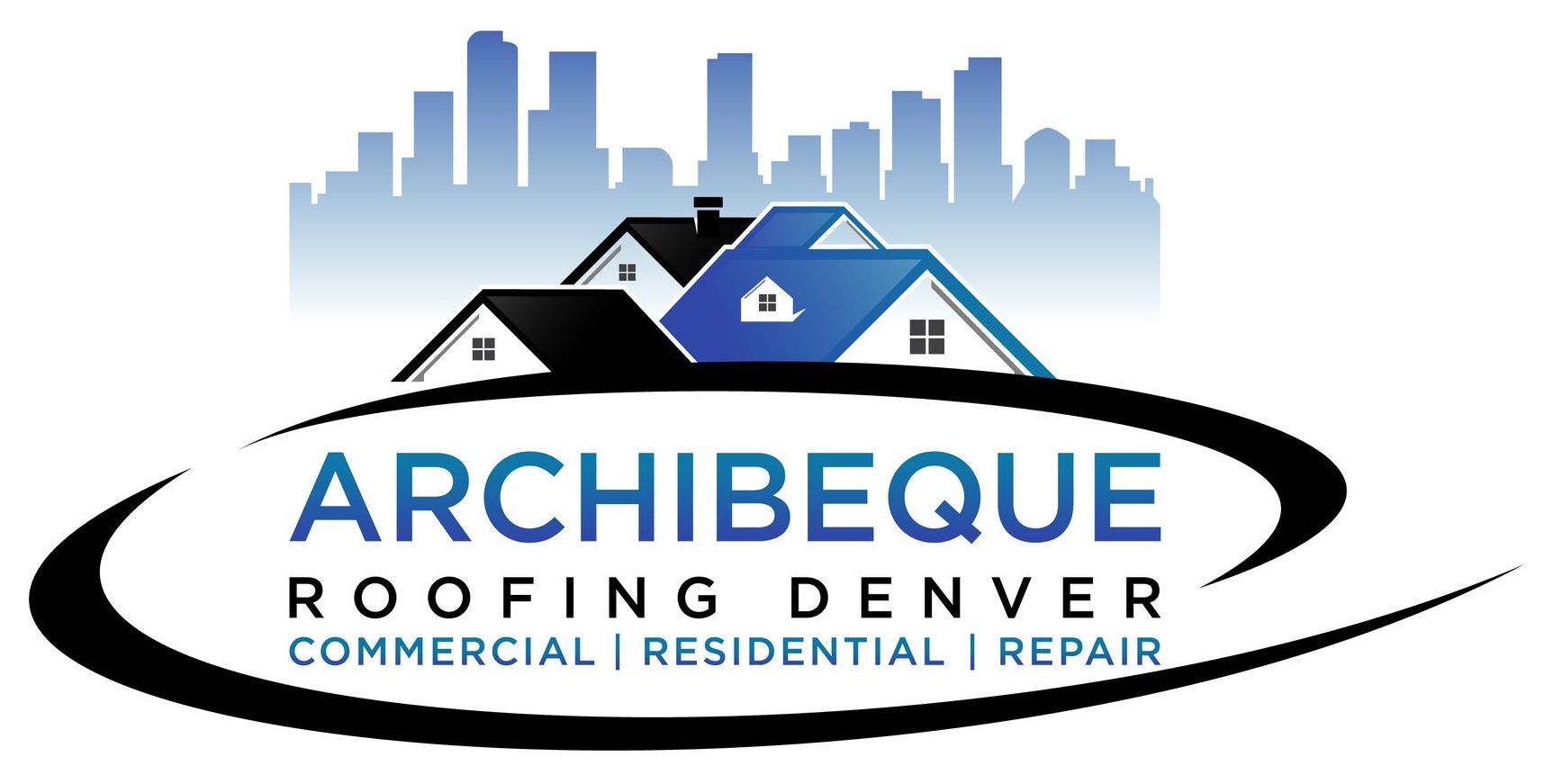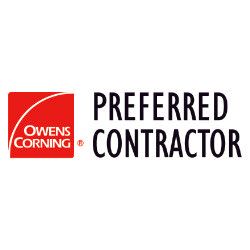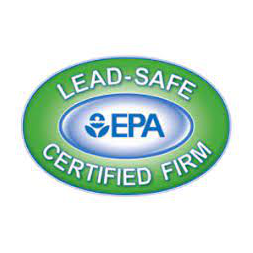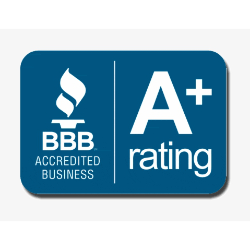PVC Vs TPO Roofing , TPO Roof, TPO Roofing Cost
PVC & TPO Roofing MEMBRANE Denver
PVC AND TPO MEMBRANE ROOFING DENVER
PVC and TPO membrane are two types of synthetic roofing material. They are both durable and waterproof, making them ideal for use on commercial buildings. However, there are some key differences between the two materials. PVC is more flexible than TPO, making it less likely to crack in cold weather. TPO is also more resistant to UV damage, making it a better choice for exposed roof areas. Both materials are available in a variety of colors, but TPO is typically less expensive than PVC. When choosing a roofing material, it is important to consider the climate and the specific needs of the building. For most commercial applications, either PVC or TPO membrane will provide an effective barrier against the elements.
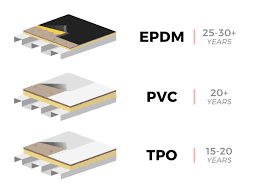
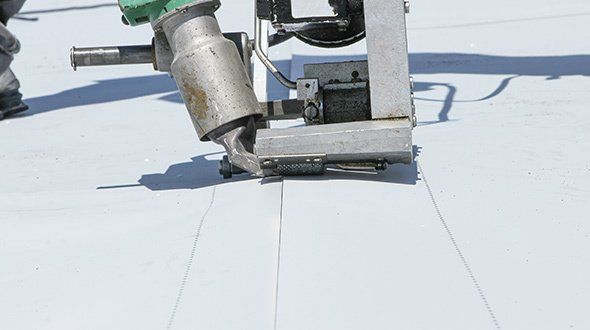
Commercial flat roof types
Building owners have many types of flat roofing materials and membranes to choose from – rubber rolled roofing, EPDM, PVC, TPO, bitumen, modified bitumen and built-up roofing. While there are many different color choices to choose from with roofing membranes, however many building owners choose to stick with white.
What is the best material for a flat roof?
The 4 Best Materials for a Flat Roof (& How Much They Cost)
- EPDM membrane roofing. EPDM (ethylene propylene diene terpolymer) is a synthetic rubber black membrane commonly used in commercial and medical facilities.
- TPO membrane roofing.
- PVC membrane roofing.
- Standing seam metal roof.
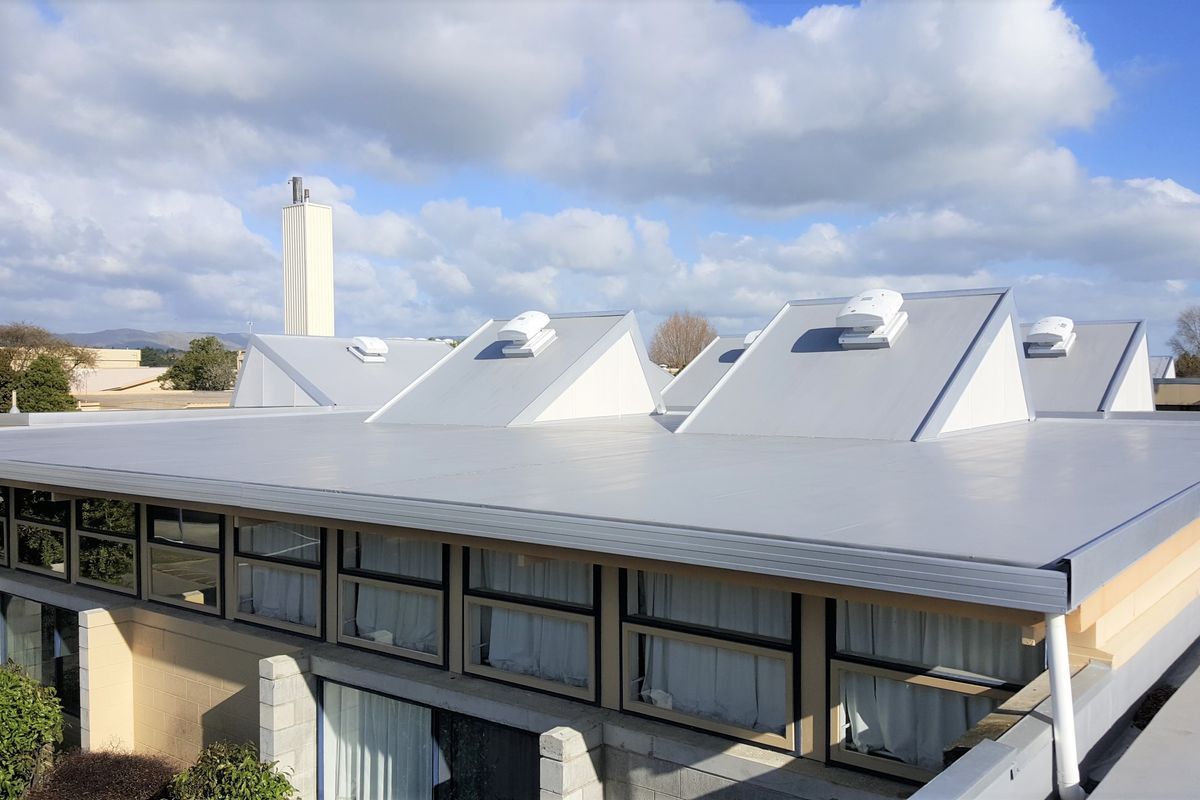
WHAT IS TPO ROOFING?
TPO, which stands for Thermoplastic Olefin, is a type of single-ply roofing membrane that is commonly used in Denver commercial and residential applications.
As a Denver homeowner or business owner, ensuring the durability and longevity of your home or business TPO is of utmost importance. One crucial aspect of any building is its TPO roofing system.
It is a highly durable and energy-efficient TPO roofing material that offers a wide range of benefits. TPO roofing is made up of a blend of polymers, usually ethylene-propylene rubber and polypropylene, which gives it its exceptional strength and flexibility.
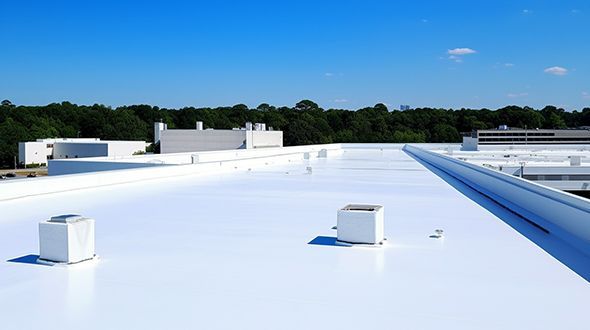
TPO ROOFING
- Energy Efficiency: One of the most significant advantages of TPO roofing is its energy efficiency. TPO membranes have reflective properties that help to reduce heat absorption, resulting in lower energy consumption for cooling. This can lead to substantial cost savings on your energy bills.
- Durability: TPO roofing is renowned for its durability. The material is resistant to tears, punctures, and impact damage, making it suitable for areas prone to extreme weather conditions. Additionally, TPO membranes have excellent resistance to UV radiation, allowing them to maintain their integrity and color for an extended period.
- Ease of Installation: TPO roofing systems are relatively easy to install compared to other roofing materials. The membranes can be mechanically fastened, fully adhered, or ballasted, depending on the specific requirements of the project. This makes TPO roofing an ideal choice for both new construction and roof replacement projects in Denver..
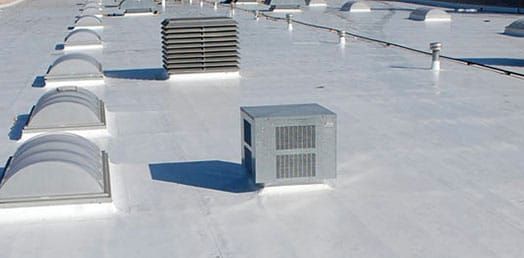
TPO ROOFING MATERIAL
TPO ROOFING IS COMPOSED OF SEVERAL LAYERS THAT WORK TOGETHER TO PROVIDE A DURABLE AND WEATHER-RESISTANT ROOFING SYSTEM. THE PRIMARY LAYERS OF TPO INCLUDE:
- Top Ply: The top ply of a TPO roofing membrane is made up of a blend of thermoplastic polyolefin, ethylene-propylene rubber, and other additives. This layer provides the membrane with its UV resistance and durability.
- Reinforcement: TPO membranes often contain a reinforcement layer, typically made of polyester or fiberglass. This layer enhances the strength and puncture resistance of the roofing system.
- Bottom Ply: The bottom ply of a TPO roofing membrane is usually made of a blend of thermoplastic polyolefin and polypropylene. This layer provides additional strength and stability to the roofing system.
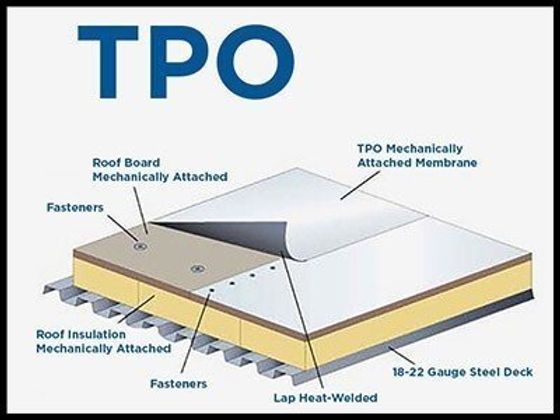
TPO ROOFING INSTALLATION
Installing a TPO roofing system requires careful planning and attention to detail. Here is a look of the TPO installation process:
- Surface Preparation: Before installing the TPO membrane, the roof surface must be thoroughly cleaned and free of debris. Any repairs or modifications to the roof structure should be completed at this stage.
- Insulation Installation: Insulation boards are installed on the roof deck to provide thermal insulation and improve the TPO energy efficiency.
- Membrane Installation: The TPO membrane is rolled out onto the roof surface and mechanically fastened or fully adhered, depending on the chosen installation method. TPO Seams are heat-welded together to create a watertight seal.
- Flashing and Edge Details: Flashing and edge details are installed to ensure proper drainage and protection against water infiltration.
- Final Inspection: Once the TPO installation is complete, a final inspection is conducted to ensure that the TPO roofing system meets all necessary codes and standards.
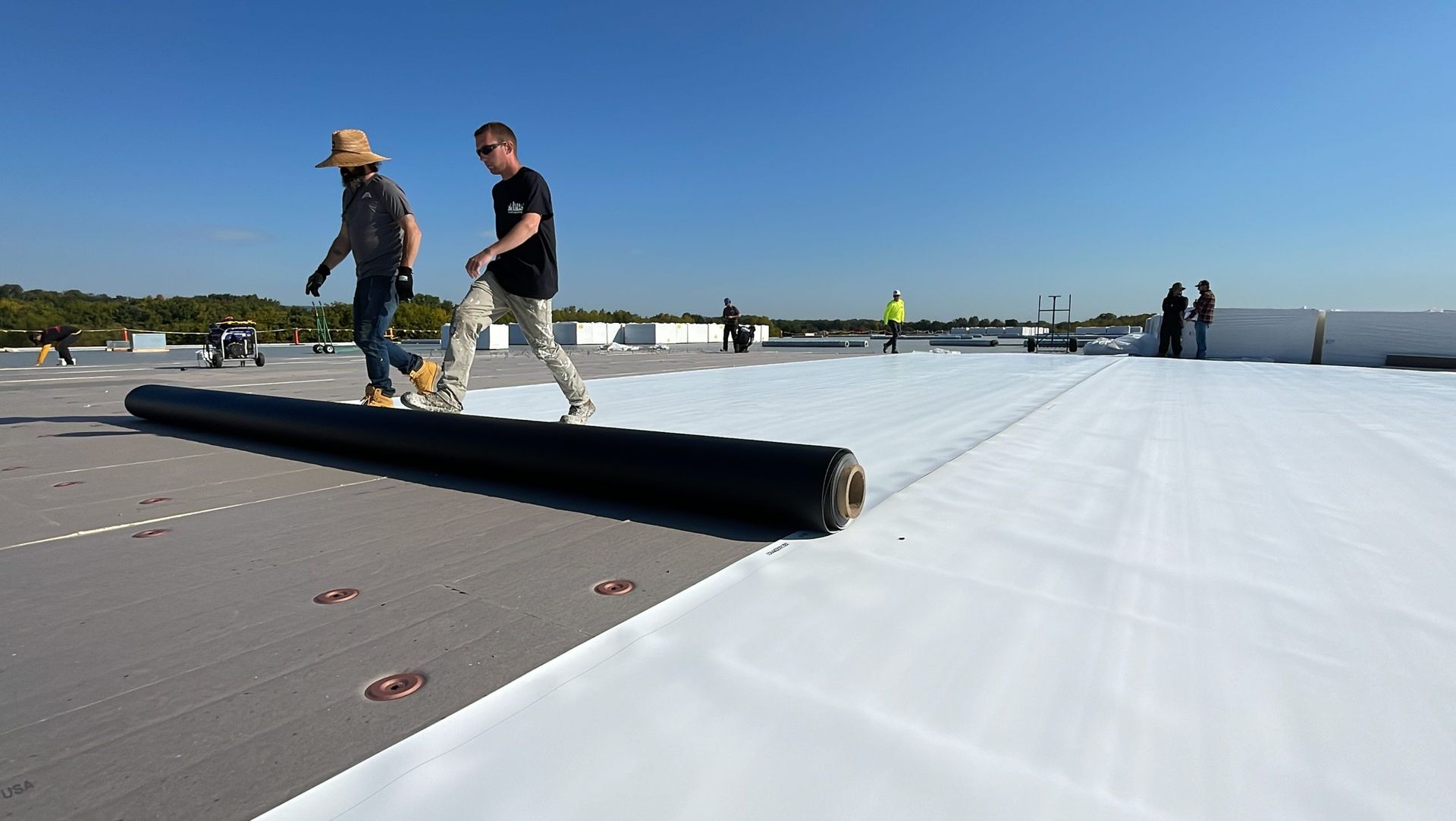
TPO ROOFING COST
The cost of a TPO roofing system depends on various factors, including the size of the roof, the complexity of the installation, and the specific requirements of the project. On average, the cost of TPO roofing ranges from $5 to $8 per square foot. Although TPO roofing may have a higher upfront cost compared to some other roofing materials, its long-term benefits and energy savings make TPO a cost-effective investment.
When considering the return on investment (ROI) of a TPO roofing system, it is essential to take into account the energy savings and increased property value. The energy efficiency of TPO roofing can lead to significant savings on heating and cooling costs over time. Additionally, TPO roofing is highly durable, which means TPO requires minimal maintenance and has a long lifespan. These factors contribute to a favorable ROI for property owners.
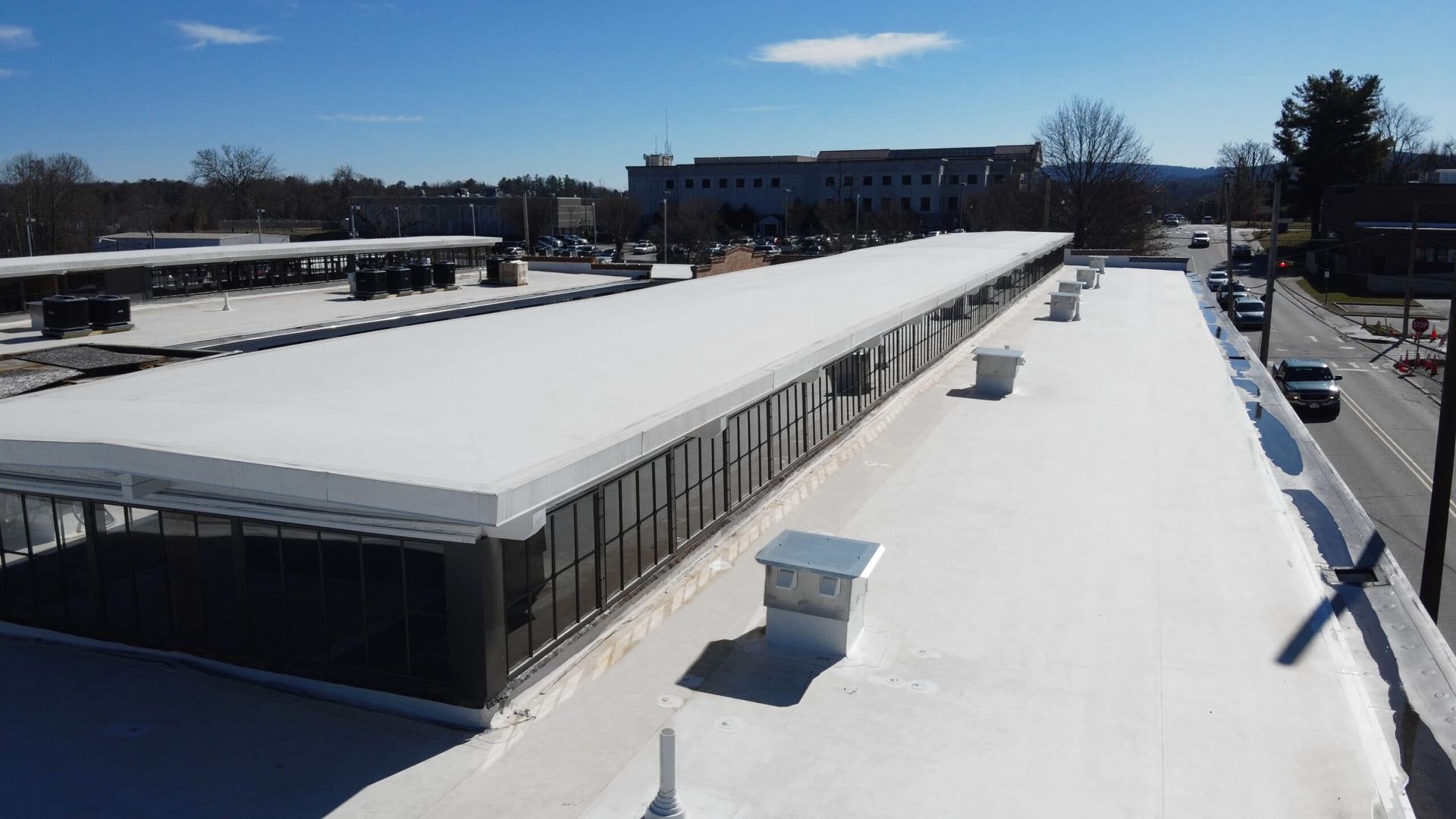
TPO ROOFING SYSTEM
TPO roofing is an excellent choice for both commercial and residential buildings due to its energy efficiency, durability, and ease of installation. Its composition of thermoplastic olefin provides exceptional resistance to weather elements and UV radiation. With the proper TPO installation and regular maintenance, a TPO roofing system can give your roof many years of reliable protection for your Denver roof by using TPO.
Consider consulting with a TPO roofing contractor to determine if TPO roofing is the right choice for your specific needs. Invest in TPO roofing and enjoy the long-term benefits it brings to your Denver home or businesses Roof.
Call Archibeque Roofing at 720-297-0436 today for a free consultation and learn more about the advantages of TPO roofing!
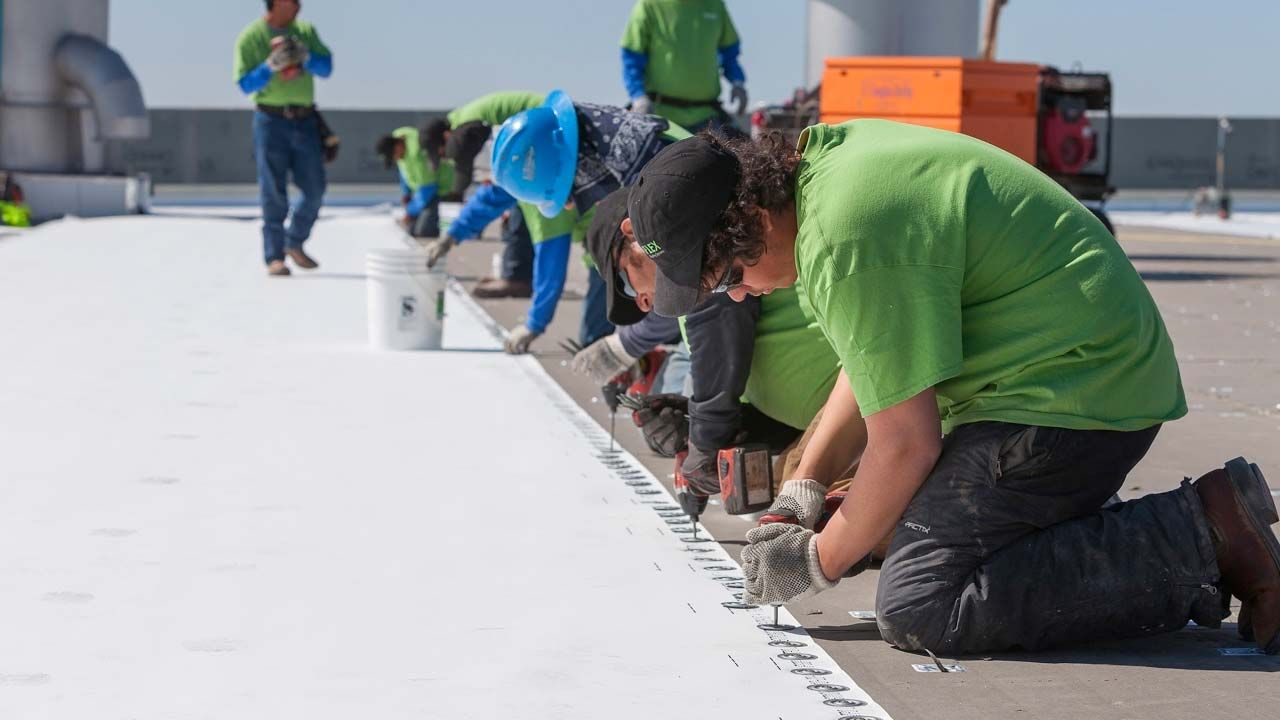
TPO Roofing Membrane
TPO roofing membrane is a popular choice in the roofing industry due to its durability and energy efficiency. TPO, which stands for Thermoplastic Olefin, is a single-ply roofing material that is composed of a blend of rubber and plastic. This combination creates a strong and flexible membrane that is resistant to UV rays, chemicals, and punctures. TPO roofing material is commonly used in commercial and industrial buildings, but TPO is also gaining popularity in residential house use.
So, what exactly is TPO roofing? In simple terms, it is a type of roofing system that consists of a TPO membrane that is installed over the roof deck and then heat-welded together to create a watertight seal. This seamless installation process ensures that there are no weak points or areas where water can seep through. Additionally, TPO roofing membrane comes in a variety of thicknesses and colors, allowing for customization based on the specific needs and aesthetic preferences of the Denver homeowner or building owner.
One of the key advantages of TPO roofing is its energy efficiency. The white reflective surface of TPO helps to reflect sunlight and heat away from the building, reducing the need for air conditioning and lowering energy costs. This can be particularly beneficial in warmer climates where cooling expenses can be significant. TPO roofing material is environmentally friendly and it can be recycled at the end of its life expectancy.
Overall, TPO roofing membrane offers a cost-effective and durable solution for both commercial and residential buildings. Its resistance to weathering, UV rays, chemicals, and punctures make it a reliable choice for any climate including Denver, CO.. With proper installation and maintenance, a TPO roof system can provide long-lasting protection for decades to come.
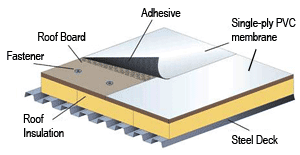
PVC Roofing
PVC roofing, also known as polyvinyl chloride roofing, has gained popularity in recent years due to its numerous benefits and advantages. PVC is a durable and long-lasting material that is commonly used for roofing applications. PVC roofing is made up of heat-welded PVC roof panels or sheets that form a watertight barrier. The result is a reliable and low-maintenance roof that can withstand harsh weather conditions in Denver and provide excellent insulation.
One of the key advantages of PVC roofing is its durability. Impact-resistant PVC roof panels are resistant to fire and chemicals, making them an ideal choice for commercial and industrial buildings. The PVC roof membranes are also highly resistant to UV radiation, which helps to extend the lifespan of the roof and maintain its color stability. This makes PVC roofing a cost-effective option in the long run, and it requires minimal repairs and roof replacements.
Another benefit of PVC roofing is its energy efficiency. PVC roof membranes have heat-reflective properties, which can help to reduce cooling costs by reflecting sunlight away from the building, thereby keeping the interior temperature cooler and reducing the need for air conditioning. This not only saves energy but also lowers Denver, CO utility bills during hot summer months.
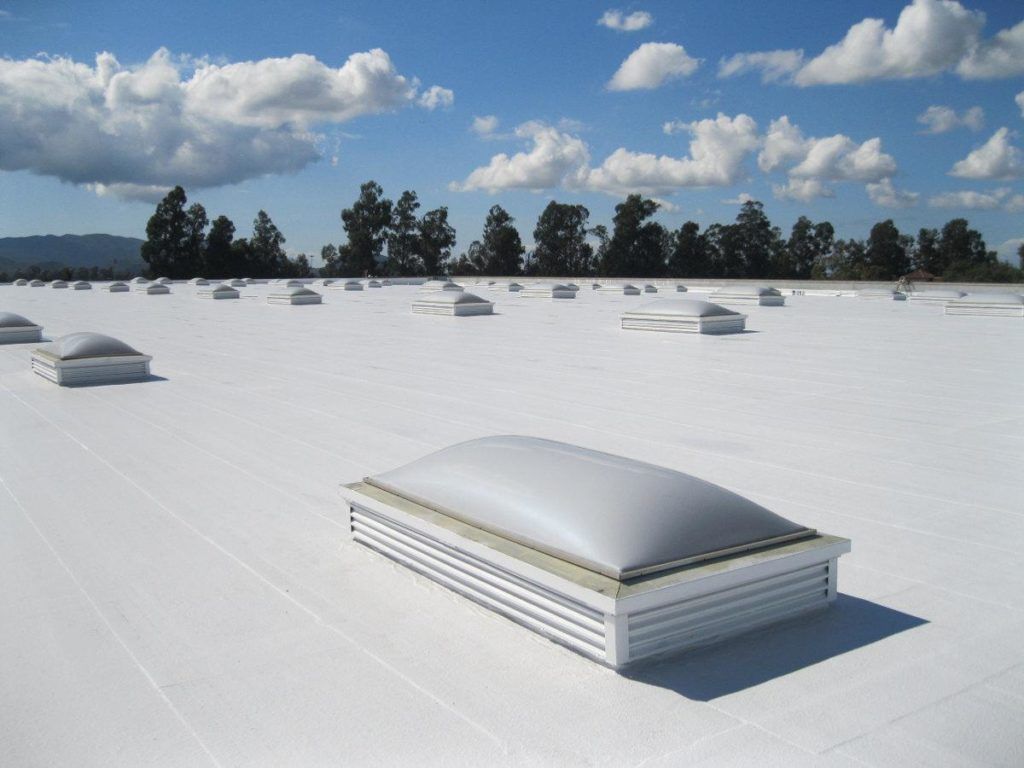
PVC ROOFING IS ALSO EASY TO INSTALL AND MAINTAIN
The lightweight nature of PVC roof panels makes them easy to handle and transport, which can save on labor costs during installation. Additionally, PVC roof membranes require minimal maintenance and are resistant to mold, mildew, and algae growth.
Regular inspections and simple maintenance routines, such as debris removal from the roof surface, are usually sufficient to keep a PVC roof in good condition.
PVC roofing offers numerous benefits that make it an attractive option for both commercial roofing and residential roofing. Its durability, energy efficiency, and low-maintenance properties make it a cost-effective choice in the long run. Whether it's PVC roof panels or membranes, this type of roofing provides a reliable and long-lasting solution for all types of structures.
Call Archibeque Roofing in Denver at 720-297-0436 today for a free consultation and learn more about the advantages of PVC roofing!
Tell Us About Your Commercial PVC/TPO Roofing Project
Get a completely obligation-free consultation with one of our professionals today
